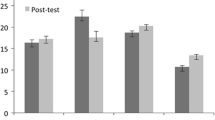Abstract
Recurrence tests, such as Adjuvant! Online and Oncotype DX, can be used to determine an individual’s risk of developing recurrent cancer. These technologies are useful for helping health care practitioners make treatment recommendations. With increasing use, it is necessary to consider patients’ experience with and attitudes toward risk of recurrence testing. Factors such as anxiety, influence on decision making, confidence in results, and satisfaction with testing are important to consider. To understand experiences and attitudes toward risk of recurrence testing, from the perspective of women who have used these technologies following a breast cancer diagnosis. A systematic review was completed. Eight multidisciplinary electronic databases, including MEDLINE, PsycINFO, CINAHL, and ERIC, were searched from 1950 to December 17, 2012. Abstracts and full-text papers were screened for inclusion, in duplicate, based on established criteria. Recurrent themes and key concepts were identified and analyzed. One-thousand and twenty-two abstracts were retrieved, and fifty-one proceeded to full-text review. Ten studies reporting on eight populations were included in this review. Key themes that emerged from the literature include: experience with the testing process; influence testing has on treatment; and comprehension of results. The literature suggests that testing for breast cancer recurrence can have a negative impact on women; poor comprehension of test results, and anxiety/distress were the most frequently cited reasons for a negative experience. Despite these drawbacks, women consistently reported that they would recommend testing to others. The literature on this topic is limited, and heterogeneous. The available literature suggests that women are generally satisfied with risk of recurrence testing for breast cancer. Potential drawbacks of risk of recurrence testing include anxiety and comprehension of test results. Additional high-quality research on women’s experiences with risk of recurrence testing for breast cancer would improve the evidence base, and would allow stronger conclusions to be drawn.

Similar content being viewed by others
References
Brewer NT, Richman AR, DeFrank JT, Reyna VF, Carey LA (2012) Improving communication of breast cancer recurrence risk. Breast Cancer Res Treat 133(2):553–561
Tzeng JP, Mayer D, Richman AR, Lipkus I, Han PK, Valle CG et al (2010) Women’s experiences with genomic testing for breast cancer recurrence risk. Cancer 116(8):1992–2000
Lipkus IM, Vadaparampil ST, Jacobsen PB, Miree CA (2011) Knowledge about genomic recurrence risk testing among breast cancer survivors. J Cancer Educ 26(4):664–669
Lipkus IM, Peters E, Kimmick G, Liotcheva V, Marcom P (2010) Breast cancer patients’ treatment expectations after exposure to the decision aid program adjuvant online: the influence of numeracy. Med Decis Mak 30(4):464–473
Cuzick J, Dowsett M, Pineda S, Wale C, Salter J, Quinn E et al (2011) Prognostic value of a combined estrogen receptor, progesterone receptor, Ki-67, and human epidermal growth factor receptor 2 immunohistochemical score and comparison with the genomic health recurrence score in early breast cancer. J Clin Oncol 29(32):4273–4278
Brewer NT, Edwards AS, O’Neill SC, Tzeng JP, Carey LA, Rimer BK (2009) When genomic and standard test results diverge: implications for breast cancer patients’ preference for chemotherapy. Breast Cancer Res Treat 117(1):25–29
Campbell H, Taylor M, Harris A, Gray A (2009) An investigation into the performance of the Adjuvant! Online prognostic programme in early breast cancer for a cohort of patients in the United Kingdom. Br J Cancer 101:1074–1084
Brewer NT, Tzeng JP, Lillie SE, Edwards AS, Peppercorn JM, Rimer BK (2009) Health literacy and cancer risk perception: implications for genomic risk communication. Med Decis Mak 29(2):157–166
Lillie SE, Brewer NT, O’Neill SC, Morrill EF, Dees EC, Carey LA et al (2007) Retention and use of breast cancer recurrence risk information from genomic tests: the role of health literacy. Cancer Epidemiol Biomarkers Prev 16(2):249–255
University of York Department of Health Sciences. Measurement in Health and Disease: Cohen’s Kappa. University of York Department of Health Sciences. http://www-users.york.ac.uk/~mb55/msc/clinimet/week4/kappash2.pdf. Accessed 23 Apr 2013
Liu Y, Perez M, Aft RL, Massman K, Robinson E, Myles S et al (2010) Accuracy of perceived risk of recurrence among patients with early-stage breast cancer. Cancer Epidemiol Biomarkers Prev 19(3):675–680
Lo SS, Mumby PB, Norton J, Rychlik K, Smerage J, Kash J et al (2010) Prospective multicenter study of the impact of the 21-gene recurrence score assay on medical oncologist and patient adjuvant breast cancer treatment selection. J Clin Oncol 28(10):1671–1676
O’Neill SC, Brewer NT, Lillie SE, Morrill EF, Dees EC, Carey LA et al (2007) Women’s interest in gene expression analysis for breast cancer recurrence risk. J Clin Oncol 25(29):4628–4634
Heshka JT, Palleschi C, Howley H, Wilson B, Wells PS (2008) A systematic review of perceived risks, psychological and behavioral impacts of genetic testing. Genet Med 10(1):19–32
Acknowledgments
Production of this work has been made possible by a financial contribution from Alberta Health and under the auspices of the Alberta Health Technologies Decision Process: the Alberta model for health technology assessment and policy analysis. The views expressed herein do not necessarily represent the official policy of Alberta Health.
Conflict of interest
The authors declare that they have no conflict of interest.
Author information
Authors and Affiliations
Corresponding author
Rights and permissions
About this article
Cite this article
Leggett, L.E., Lorenzetti, D.L., Noseworthy, T. et al. Experiences and attitudes toward risk of recurrence testing in women with breast cancer: a systematic review. Breast Cancer Res Treat 144, 457–465 (2014). https://doi.org/10.1007/s10549-014-2900-3
Received:
Accepted:
Published:
Issue Date:
DOI: https://doi.org/10.1007/s10549-014-2900-3




